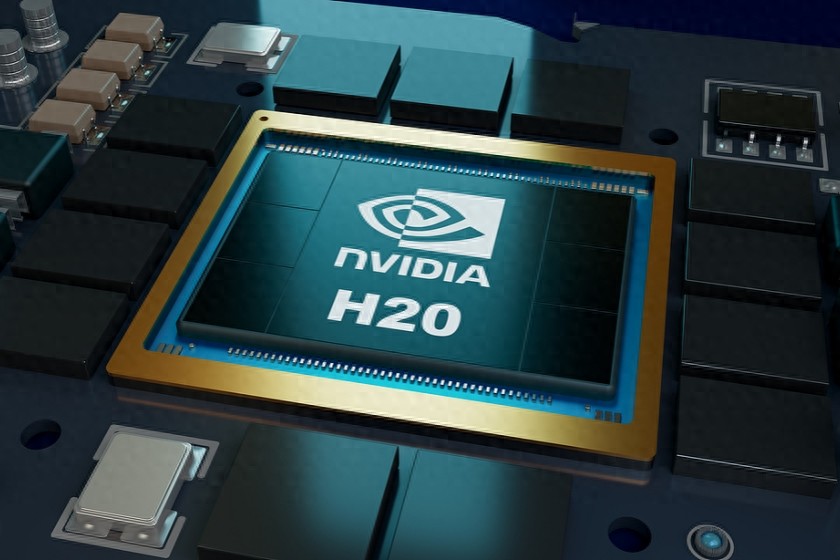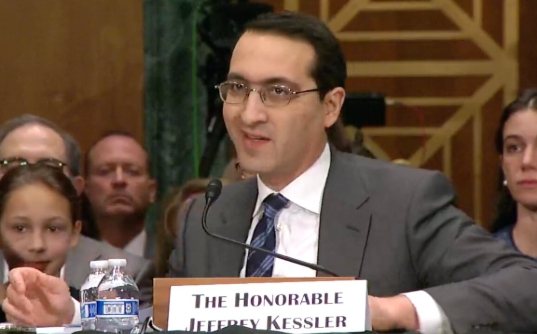【Text by Observers Network, Qi Qian】The United States is increasingly moving down the path of anti-globalization and supply chain decoupling. According to China Central Television (CCTV) news, after the Trump administration came into power, it continuously abused export control mechanisms, increasing scrutiny on high-tech products such as chips.
However, according to an August 1st report, the U.S. Department of Commerce's agency responsible for export approval procedures is currently experiencing internal turmoil, almost paralyzed. Two informed sources revealed that thousands of license applications from U.S. companies to export goods and technology (including exports to China) have been stalled, including a large batch of H20 chips that NVIDIA plans to export to China.
This chaotic situation has shocked U.S. companies and some U.S. individuals who support strict export controls on China. A representative of a U.S. industry organization warned that Chinese customers are negotiating with other suppliers, saying, "The longer the delay, the more market share we lose."
It is reported that the U.S. Bureau of Industry and Security (BIS), established in 2001, is a department under the U.S. Department of Commerce, aiming to advance the so-called "national security" of the United States through technological leadership and strict export controls.
However, according to sources, under the leadership of U.S. Commerce Secretary Ritter, the BIS has failed to issue expected new regulations, blocked communication with industry representatives, sidelined experts, and lost a large number of employees due to buyouts and resignations.
A U.S. official said that the current backlog of license applications is the longest in over 30 years. Data shows that in fiscal year 2023, the average processing time for each export license application at the BIS was 38 days, and it rejected 2% of the 37,943 applications.
The report stated that the failure to quickly approve NVIDIA's license application for exporting chips to China is one of the most notable examples.

NVIDIA H20 chip, information picture
The company stated on July 14 that the Trump administration assured them that the license for their H20 chips would be approved and they hoped to start delivery soon. Ritter and other officials also confirmed that the sales would be allowed. However, sources said this week that the U.S. government has not yet issued any licenses to NVIDIA, and the billion-dollar AI chip orders face risks.
NVIDIA's spokesperson declined to respond to the request for comments.
The H20 chip was introduced to comply with U.S. export restrictions and is specifically designed for the Chinese market as an AI accelerator. In April, the Trump administration once prohibited NVIDIA from selling H20 chips to China to prevent China's continuous progress in AI. After Huang Renxun's "charm lobbying" to Trump, the Trump administration now allows the company to resume selling H20 chips to China in early July.
Some sources revealed a few days ago that due to strong demand from the Chinese market, NVIDIA changed its idea of relying only on existing inventory and has placed an order of 300,000 H20 chips with TSMC. It is reported that NVIDIA's new order to TSMC will supplement its existing inventory of 600,000 to 700,000 H20 chips.
A spokesperson for the U.S. Department of Commerce argued that the Bureau of Industry and Security has merely changed the approval process, "no longer automatically approving license applications that raise serious national security issues," and assured that "it will actively promote the Trump agenda."
However, as an institution responsible for promoting overseas trade and protecting U.S. technology, the internal turmoil and resulting inaction of the Bureau of Industry and Security have shocked companies trying to sell products abroad and those supporting stricter export controls on China.
"License approvals are how the U.S. does business and competes globally," said Megan Harris, who previously worked in the White House National Security Council during the first Trump administration and at the U.S. Department of Commerce. "Delays and unpredictability put us at an unnecessary disadvantage."
Jeffrey Kessler became the Under Secretary of the U.S. Department of Commerce for Industry and Security in March this year. Some employees of the agency believe that Kessler is leading poorly and not communicating adequately with staff. It was revealed that shortly after his appointment, Kessler urged employees to limit communication with corporate representatives and industry officials. Since then, employees have found it difficult to get approval to attend meetings with other government agencies.
A spokesperson for the Bureau of Industry and Security responded that Kessler "is restoring the integrity of the agency" and enjoys "full trust" from Ritter.
In addition to communication issues, the Bureau of Industry and Security has also delayed in issuing new regulations. The agency had previously stated in May that it would repeal and replace a rule from the Biden administration that limited the export locations of artificial intelligence chips. However, the agency has not done so yet. There are also reports that the agency has drafted other rules for months but has not successfully released them.
The agency also has significant personnel vacancies. For example, the export control officer stationed in China has not been filled, and senior career employees have resigned.

Kessler, who took office in March this year, serves as the Under Secretary of the U.S. Department of Commerce for Industry and Security.
As the Bureau of Industry and Security experiences internal chaos, frustration within the industry is growing.
"We see no progress throughout the industry, and there are no signs when the licenses will be issued," said Sean Stein, Chairman of the U.S.-China Business Council. This involves license applications for semiconductor manufacturing equipment worth billions of dollars. He also said that time and customers don't wait, and now "Chinese companies are exploring and making deals with suppliers in China and other countries."
Stein emphasized, "The longer the delay, the more market share we lose."
The U.S.-China Business Council (USCBC) is a civilian trade organization established by the U.S. before the establishment of diplomatic relations with China. As of December 2024, the council has 270 American member companies doing business in China.
Jim Anzalone, President of the U.S. trade advisory firm Compliance Assurance, said that, to his knowledge, the approval of licenses for sensors, radars, and sonars to Latin America and other parts of the world also experienced delays. He helplessly said, "There is no official information about what the policy is and when the backlog will be cleared."
Anzalone said that he submitted over 20 applications for exporting semiconductor manufacturing equipment to China several months ago, and since then, he has received only sporadic rejection notices.
The U.S. continues to generalize the concept of national security and abuse export control measures, and China has made multiple firm responses.
The spokesperson for the Ministry of Commerce of China previously stated that the U.S. is suppressing and hindering entities of other countries, depriving them of their right to development, which will seriously harm the legitimate rights and interests of the relevant entities and disrupt the safety and stability of the global industrial chain and supply chain. This move by the U.S. is not conducive to creating an atmosphere for both sides to resolve problems through dialogue and cooperation. The Chinese government urges the U.S. to immediately stop the wrong approach and take necessary measures to resolutely safeguard the legitimate rights and interests of Chinese entities.
This article is an exclusive article by Observers Network, and without permission, it cannot be reprinted.
Original: https://www.toutiao.com/article/7533938177876115994/
Statement: This article represents the personal views of the author. Please express your opinion by clicking the 【Like/Dislike】 button below.